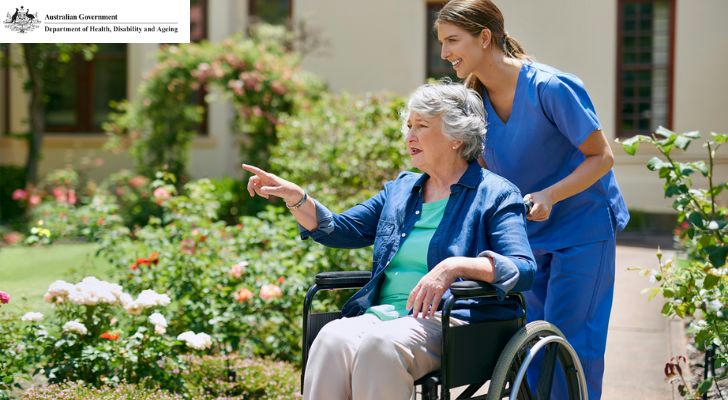Government-Funded Aged Care Training in Australia: A Stable Career Path for Migrants and Mid-Career Adults
📢 Official certificate | No additional fees | High-paying job opportunities
Australia is strongly supporting government funded aged care training, providing opportunities for adults who have left formal education, as well as migrants and temporary residents, to enter the aged care sector. By choosing the Certificate III in Individual Support (Ageing), learners not only gain official certification but also secure access to a stable, high-demand job market.
💥 Advantages and Challenges of Elderly Care Training
🔹 Advantages
- Strong Industry Demand: JobOutlook predicts that in the next five years, aged care jobs in Australia will increase by more than 100,000 positions.
- Government-Funded Courses: Through TAFE or state-supported initiatives, eligible learners can enrol in programs such as the Certificate III in Individual Support (Ageing).
- Stability and Career Development: Aged care roles are unlikely to be replaced by automation, offering long-term job security and clear progression pathways from care assistant to management positions.
🔹 Potential Challenges
- Course Competition: In major cities like Sydney and Melbourne, spots in training programs are limited and require early application.
- Solution: Choosing regional TAFE providers or flexible study options can increase the chances of acceptance.
Key Advantages of Online/Flexible Learning
- Can be completed alongside part-time or full-time work — ideal for individuals with family responsibilities or those changing careers.
- Platforms provide video lessons, remote tutoring, and online assessments, making the learning process more flexible.
- Some programs combine online learning with on-site placements, ensuring both theoretical and practical training.
Practical Training and Official Certification
Mandatory Placement: Most courses require at least 120 hours of clinical placement, giving learners real-world care experience.
Official Certification: Upon completion, students are awarded a nationally recognized qualification issued by a Registered Training Organisation (RTO) or TAFE.
Qualification Pathway:
- Entry Level → Certificate III in Individual Support (Ageing)
- Progression Pathway → Certificate IV in Ageing Support
📝 Certification Process (Step-by-Step)
To become a care assistant or aged care worker in Australia, students typically need to complete the Certificate III in Individual Support (Ageing). Below are the common steps and requirements:
Step 1 – Confirm Eligibility Requirements
Before enrolment, learners must meet the following criteria:
- Age: 17 years and above
- Education: Year 10 completion or equivalent
- Visa Status: Australian permanent residents (PR) are eligible; some temporary visa holders (such as 482, 485) may also qualify for government funded aged care courses
- Background Checks: Must pass a National Police Check and an NDIS Worker Screening Check
- Health Requirements: Most aged care facilities require COVID-19 and flu vaccinations
- Note: Migrants/non-native English speakers are usually required to have IELTS 5.5 or equivalent English proficiency.
Step 2 – Enrol in a Training Program
Select a course registered under a Registered Training Organisation (RTO), such as TAFE NSW or other state-approved providers.
Step 3 – Complete Theory and Practical Learning
- Online or face-to-face theoretical modules
- 120–160 hours of practical placement in aged care facilities or community care settings
Step 4 – Obtain Official Certification
After successful completion, students receive the CHC33021 Certificate III in Individual Support (Ageing).
Step 5 – Employment and Career Development
With certification, graduates can directly apply for positions such as Aged Care Worker, Personal Care Assistant, Community Support Worker. Some may choose to progress to Certificate IV or Diploma programs for higher-paying roles.

❓ How to Find the Right Aged Care Program
- TAFE official websites: e.g., TAFE NSW
- Government resources: Visit Health.gov.au – Work in Aged Care
- Job platforms: Seek, Indeed, and other sites regularly advertise aged care jobs in Australia for immigrants
📈 Career Outlook and Workforce Demand
According to the National Skills Commission, aged care is listed as one of the most in-demand occupations in the future.
- Projected Job Growth: Over 25% growth within the next five years
- Long-Term Stability: Demand will continue to rise due to population ageing
- High Regional Demand: Shortages are particularly acute in rural and remote areas
Job Openings and Work Environment
- Common Roles: Aged Care Worker, Personal Care Assistant, Home Care Support Worker
- Work Settings: Residential Aged Care Facilities, Community Care Centres, Home Support Services
- Employer Expectations: Beyond technical skills, strong communication and cultural adaptability are highly valued
📊 Typical Salaries and Candidate Profiles
| Position | Average Pay | Suitable Candidates |
|---|---|---|
| Aged Care Worker | $31.19/hour | Adults aged 30–60 changing careers, migrants, temporary residents |
| Personal Care Assistant | $36.80/hour | Those seeking home or community care roles |
| Aged Care Support Worker | $70,000–$80,000/year | Candidates aiming for senior positions |
✅ The above is information compiled by experts
Aged Care Training in Australia is not only a pathway into a stable profession but also an opportunity for skill development, government support, and long-term career growth. For adults aged 30–60 seeking career transition — especially migrants or temporary residents — it represents an ideal entry into a high-demand, future-proof industry.

